The Ultimate Guide to Car Camping Essentials
Car camping is a great way to save money while traveling if the circumstances are right! I love a good hotel or Airbnb, but accommodation expenses can add up quickly.
I car camped my way across the United States from North Carolina to Washington state and back. Alternating car camping with hotels/Airbnb’s made the trip so much more affordable, which enabled me to travel for a longer period of time. I definitely didn’t start my car camping journey with a cross country excursion, though! I started with smaller, local trips and worked my way up until I felt comfortable with my planning process and setup.
If you look up “car camping,” you’ll probably find a mixture of A) sleeping in your car and B) sleeping in a tent beside your car at a drive up site. In this blog post, I’m referring to the former (sleeping in your car) and will be sharing all of my car camping essentials – from tips for finding campsites to must-have items!
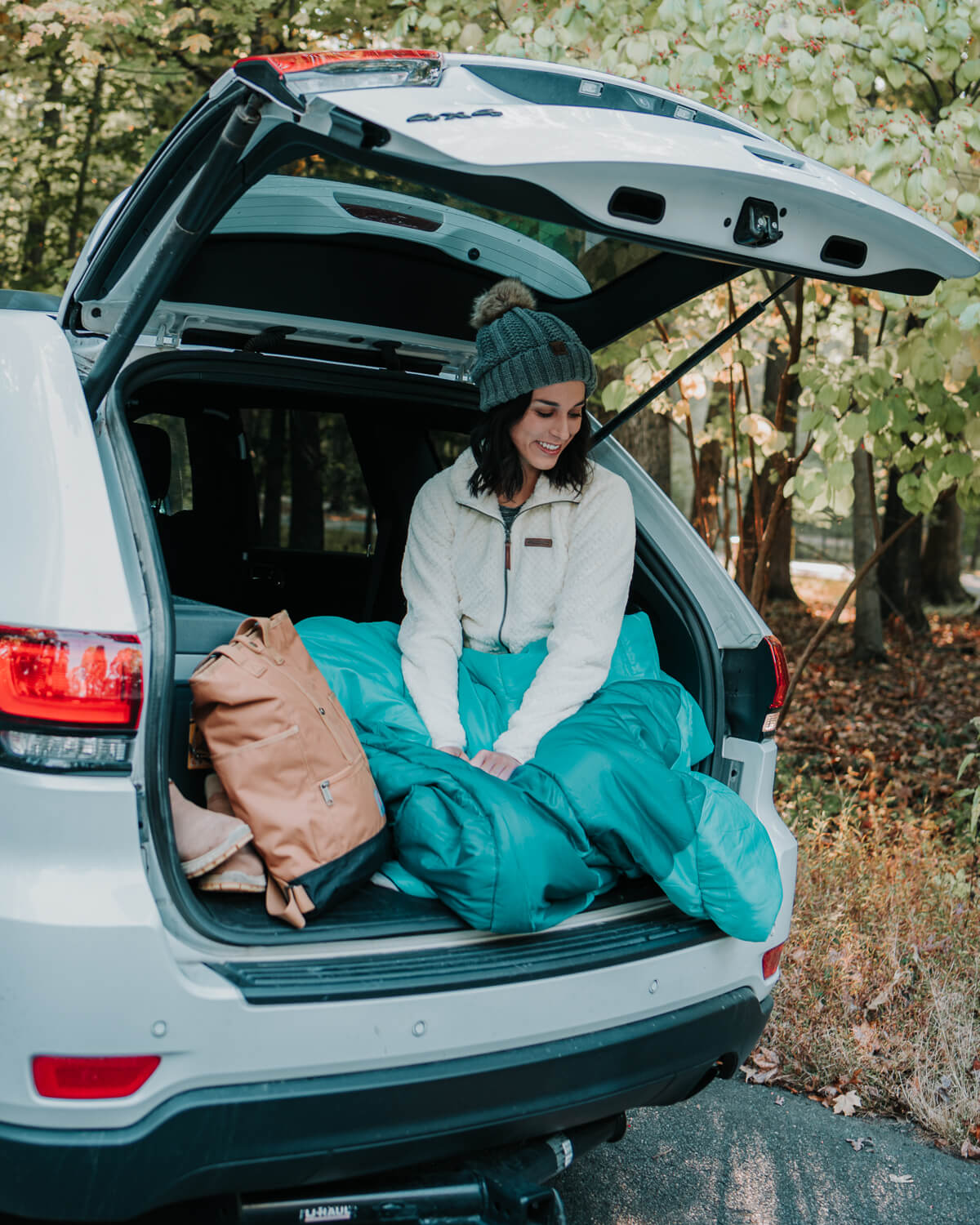
Car Camping Essentials for Beginners
Disclaimer: This blog contains affiliate links which means I earn a small percentage of every purchase at no cost to you. I appreciate your support!
Car
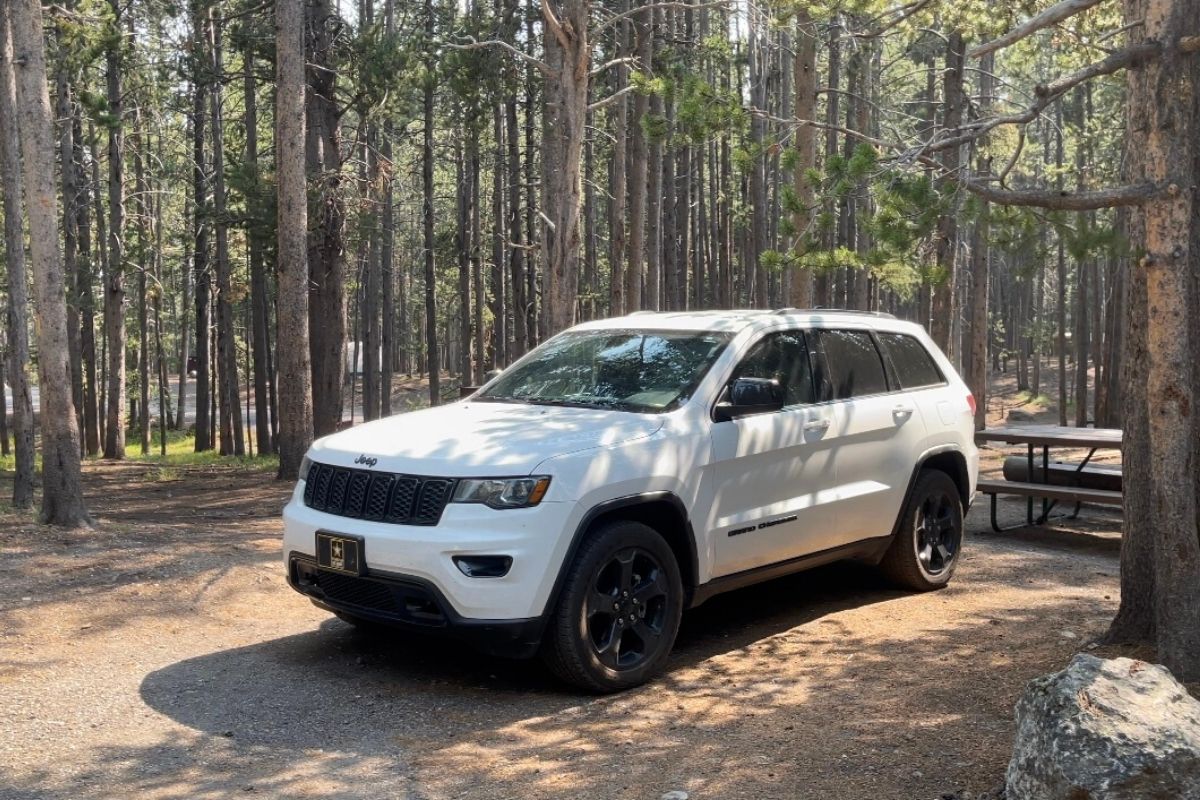
Duh, right? But I wanted to clarify that it doesn’t necessarily have to be a particular vehicle. There are tons of resources on car camping online – even for more compact vehicles. Check out this guide for more information on camping in a compact vehicle.
You can quickly run out of room, even in an SUV, if you’re not strategic. Packing your car when you’re going to be sleeping in it is like like Tetris. Covering all your bases without having too much extra stuff taking up valuable space is the name of the game!
I suggest having everything you need a few weeks before you start planning any trips so that you have time to make adjustments if needed. Even going on a practice trip for just one night before planning anything bigger can be super helpful.
Also Read: Road Trip Essentials for your Next Adventure
Campsite
You can’t just park anywhere and call it a night, which is why I always make plans in advance rather than scrambling to find a spot at the last minute. It’s important to be prepared and have somewhere that you can safely park your car. Luckily, there are great resources online that make this easy!
Here are a few of my favorite resources for finding campsites:
Hipcamp
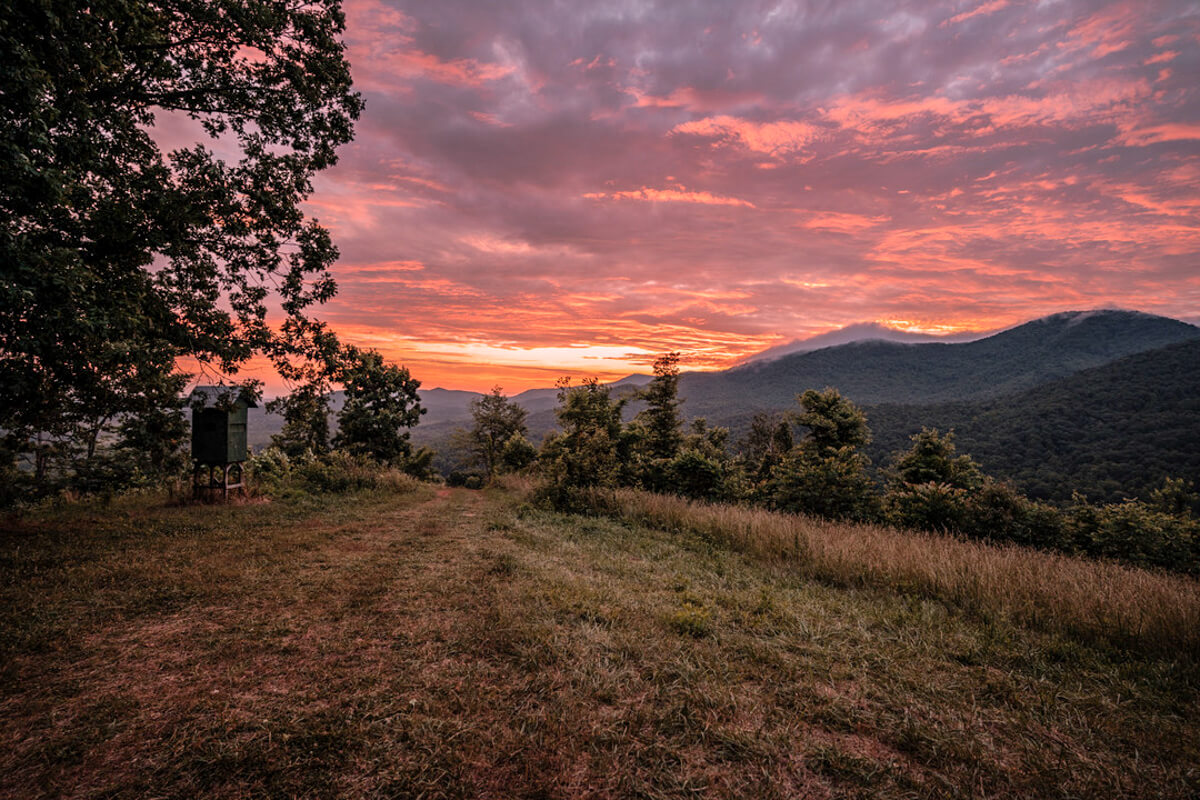
Hipcamp is my favorite resource for finding places to car camp. It’s essentially Airbnb for campsites. I’ve found some of my all-time-favorite campsites (like the one shown above) using this app! You can see what amenities are available as well as communicate with hosts on the platform.
I’ve used Hipcamp on multiple occasions for car camping and have only had awesome experiences. Just like I look for super hosts on Airbnb, I look for Hipcamps with a substantial number of positive reviews. Pricing varies, but I’ve paid around $20/night in most instances.
Pros: Lots of affordable options, easy booking, can ask host questions before booking, community reviews with photos
Cons: It can be hard to find a spot in a specific area (not great if you’re trying to stick to a certain route)
FreeCampsites.net
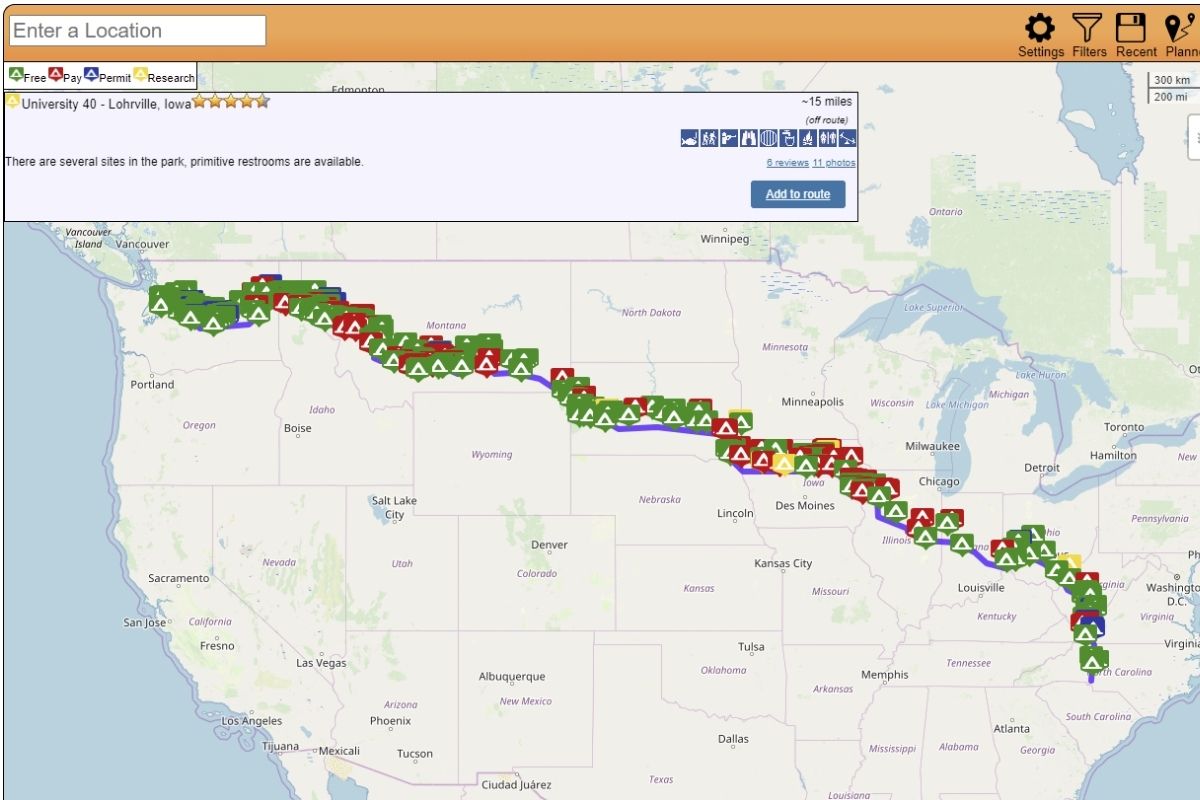
FreeCampsites.net was an AWESOME resource for helping me plan my XC road trip from NC to WA state. The “Trip Planner” feature not only provides a detailed route, but also gives campsites along the way. It automatically generates its own route, but you can change that by adding up to ten stops.
Like the name suggests, this website makes it very easy to find free campsites ranging from Cracker Barrell parking lots to Bureau of Land Management (BLM) public lands.
Pros: Free resource, great database of free campsites, “Trip Planner” feature makes it easy to customize your route and find sites in a targeted area (you can enter a max # of miles and it won’t show you campsites outside your route beyond that), reviews/photos of most campsites
Cons: Lack of updates/outdated reviews, some campsites require additional research to determine whether they’re free or require payment, only ten stops can be added along a route (not a big deal for shorter road trips but not great for longer routes)
Roadtrippers
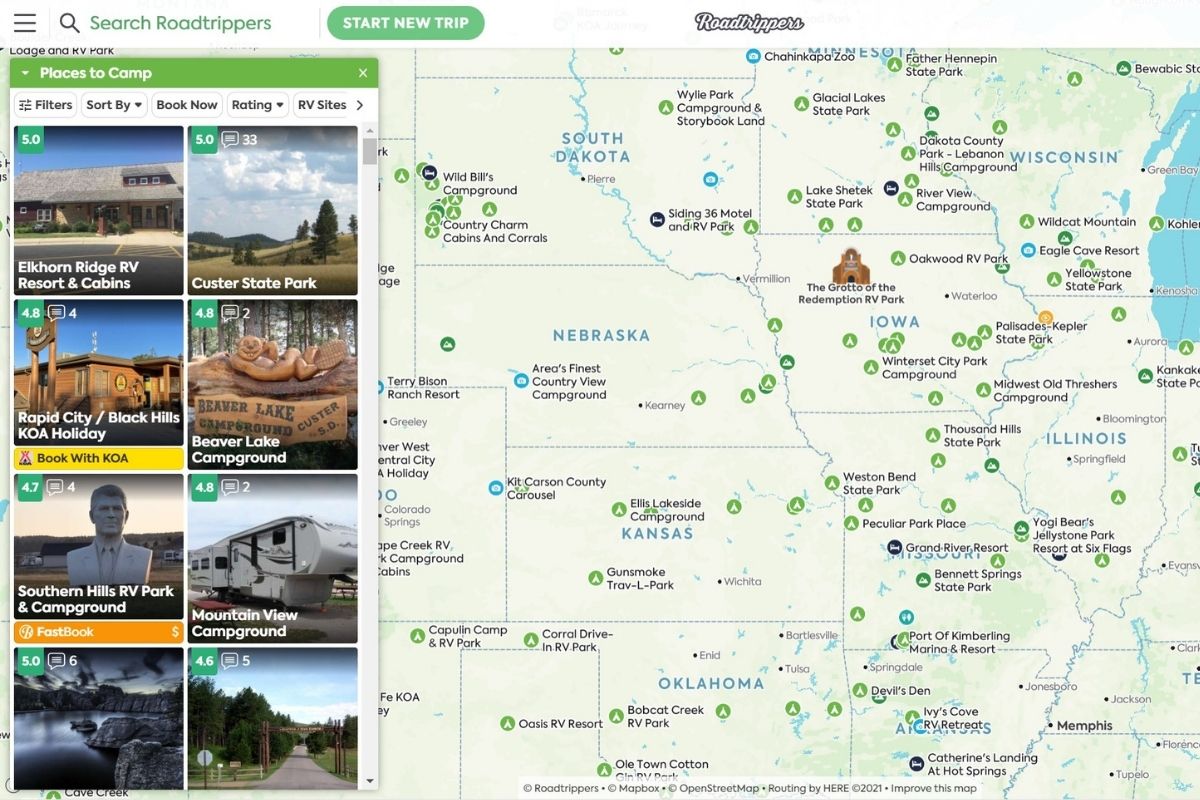
You can use the “Trip Planner” feature on Roadtrippers to do pretty much the same thing shown above with Free Campsites. However, the camping options listed on Roadtrippers are distinguished campgrounds and generally require reservations/payment.
I relied most heavily on Roadtrippers to plan my entire XC trip since it provides information beyond camping such as points of interest, attractions, restaurants, etc. I ended up purchasing the Plus membership (it’s $29/year) so that I could add more than five stops (you can add up to 150 stops with Plus). Now, I use it all the time – even to plan adventures around North Carolina.
Pros: Great database of distinguished campgrounds ranging from well-known to privately owned options, “Trip Planner” feature makes it easy to customize your route and find sites in a targeted area, reviews/photos of most campsites
Cons: Very limited in what you can do without a Plus membership
Sleeping pad or car mattress

A car mattress or sleeping pad is one of the most important car camping essentials. The trick here is to find something that’s comfortable but not too bulky or cumbersome to set up and put away.
Amazon has a variety of budget-friendly options! I have tried several different sleeping pad but decided to go with a foldable mattress for car camping. I use this tri-fold mattress. I have the single size as that’s what fits best in my Jeep Grand Cherokee.
Window covers
Covering my windows gives me so much peace of mind when sleeping in my car at night! I know I wouldn’t be able to sleep comfortably without them. Some people might not care, but they’re one of my top car camping essentials.
Whenever I share about my car camping setup on IG, I always get a lot of questions about my window covers. Most people want to know whether I purchased them. I have a custom sun shade for my front windshield, which I purchased off Amazon. I cover the rest of my windows with the homemade window covers.
To make your own window covers, you’ll need Reflectix, spray adhesive, scissors, a sharpie, and black fabric. The hardest step is holding the Refletix up to your window and tracing with sharpie so that you can get an outline of your window. After that, you’ll just cut your outline, spray with fabric adhesive, and attach your fabric! I cut them slightly oversized so that I could stuff them into my windows without needing to use any sort of adhesive, but I always take duct tape in case any of them start to fall. If you have any questions about the process, feel free to DM me on IG.
Cooler
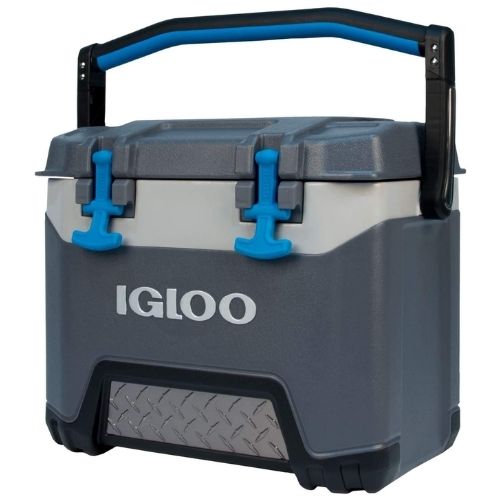
The Igloo 25 Quart Cooler is my go-to for car camping. It’s small enough that it fits in my passenger seat, but large enough to fit a 10lb bag of ice along with what I usually pack for a few days of camping (deli meat, almond milk, overnight oats in mason jars, water, and snacks).
Sleeping bag & pillow
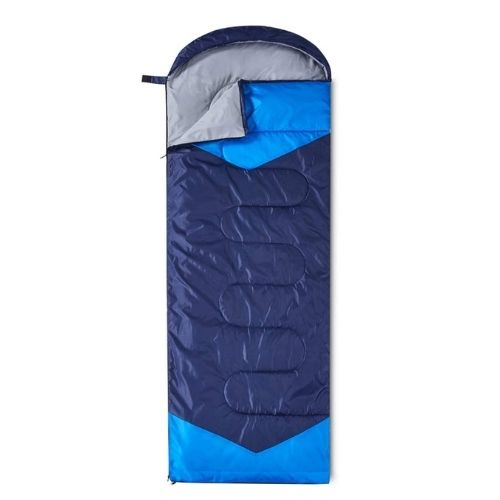
I usually just bring my pillow from home when I’m sleeping in my car. As for a sleeping bag, you’ll want to check the weather and ensure you have the right bag to keep you comfortable! This Oaskys 3-season sleeping bag is lightweight, affordable and great for camping in mild weather. Alternatively, you could use a camping blanket in the warmer months if you’d prefer that to a sleeping bag.
I highly recommend investing in a down sleeping bag to keep you warm if you’re going to be doing a lot of cold weather camping.
P.S. – If your sleeping bag comes in a stuff sack, don’t leave it in there when you aren’t camping. A storage bag is fine (as long as the sleeping bag has room to breathe). This will help prevent damage to your bag’s insulation.
Camp chairs
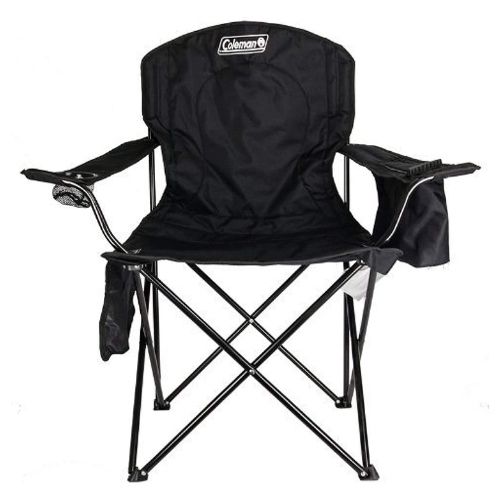
Even if you have a picnic table at your site, it’s not the most comfortable place to sit. I always bring a camp chair along! These Coleman camping chairs are durable and affordable. The built-in cooler is great for holding extra drinks or whatever else you might have on you that you don’t want falling on the ground.
Flashlight and/or headlamp
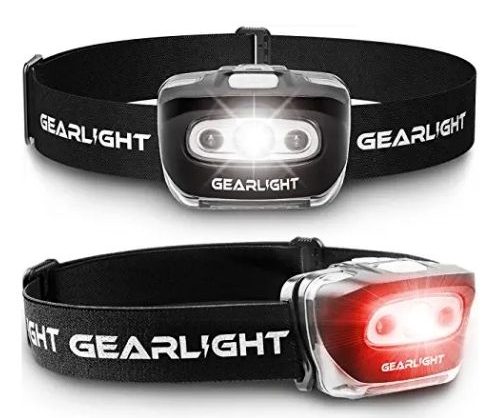
There’s nothing worse than trying to do something or find something in the dark and not having enough light. Make sure you have a flashlight or headlamp AND batteries! I purchased this GearLight headlamp set since it’s affordable and you get two! I keep one in my car and the other in my hiking pack.
Portable charger
Whenever I go car camping, I always make sure to pack a portable phone charger! This particular charger holds charge extremely well and will charge a phone several times over. I also keep a solar charger on me as well as a backup! I usually leave it on my dash while driving to build up its charge.
Camping stove
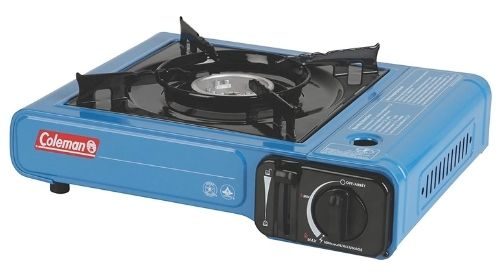
If you’re just going somewhere for a night, a camping stove might not be necessary. You can probably get away with packing anything you might need in a cooler and using your campfire. However, if you’re planning on a camping for a few days or longer, I highly recommend investing in a camping stove. I use this compact Coleman camping stove.
I suggest bringing a portable table (remember to use a heat resistant mat if you have a plastic table) if you unsure as to whether you’ll have access to a picnic table or something to set your stove on.
Don’t forget your mugs, pots & pans, plates, utensils, and trash bags! Here’s some great inspo for camping recipes.
Another thing: No matter what stove you choose, you’re going to need fuel (whether that’s butane, propane, etc.), so make sure you’re prepared!
First aid kit
I highly suggest taking a first aid kit with you anytime you go camping. It’s one of those better to have it and not need it than need it and not have it car camping essentials. Amazon has tons of compact first aid kits that are super cheap! I keep this first aid kit in my car.
Bug spray & sunscreen
Sunscreen is important year-round and bug spray is a necessity in the warmer months in many destinations!
[mailerlite_form form_id=2]Toiletries
Depending on where you’re camping, you might have access to facilities to use the restroom. If not, you need to plan accordingly.
I always pack a little bag of toiletries with the following items:
- Wipes
- Hand sanitizer
- Toothbrush & toothpaste
- Microfiber towel
- A small shovel for cat-holes or WAG bags (per Leave No Trace, you must dispose of waste properly, so you can’t go just anywhere)
Weather-appropriate clothing
I’ve car camped in really hot temps and really cold temps. Having the right gear and clothing to keep you comfortable is so important! Moisture-wicking and quick-drying items are great to have! And as always, pack layers!! I like to have a rain jacket handy as well.
Entertainment
Chances are you won’t have great cell service. Bring a board game, cards, a journal, or a book! Something you can enjoy around a campfire with your pals.
If you’ve ever been car camping, I’d love to hear some of your car camping essentials or your favorite resource for finding campsites! Let me know in the comments!
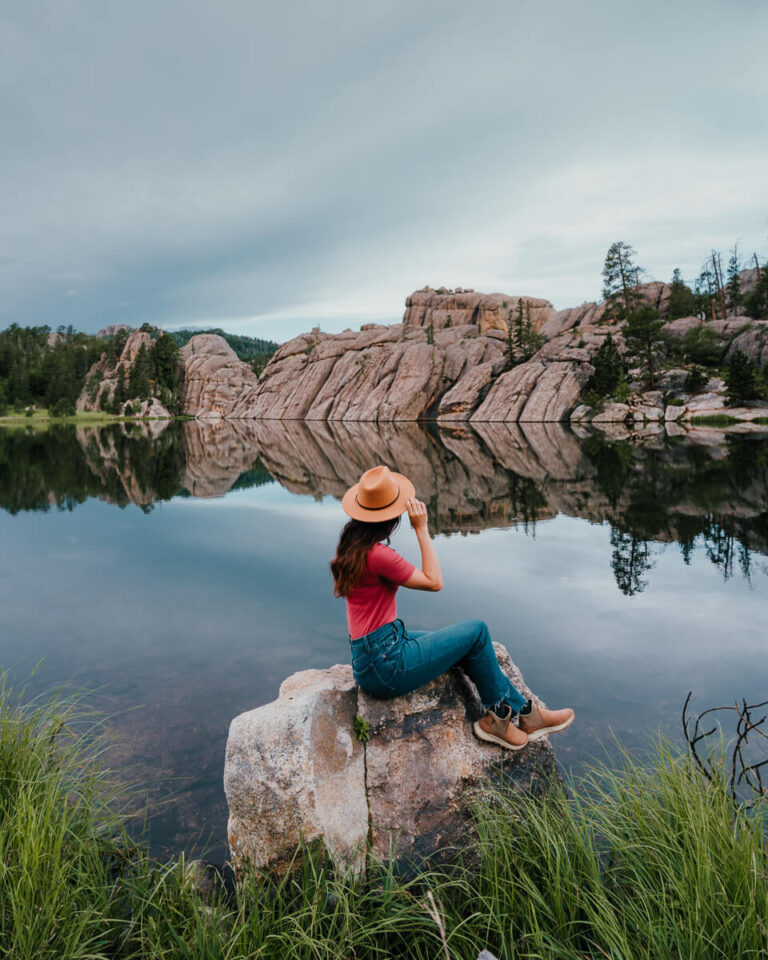
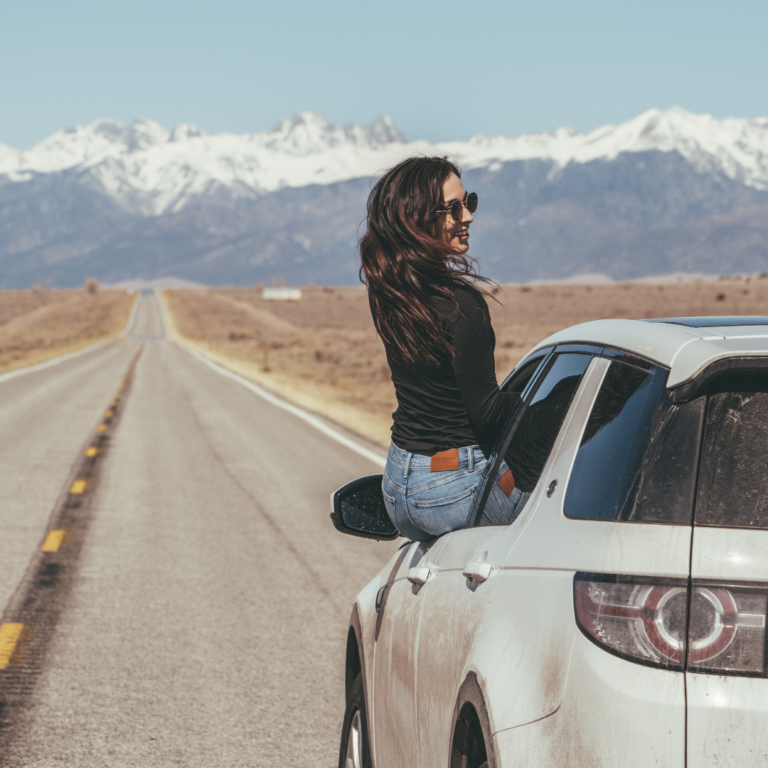
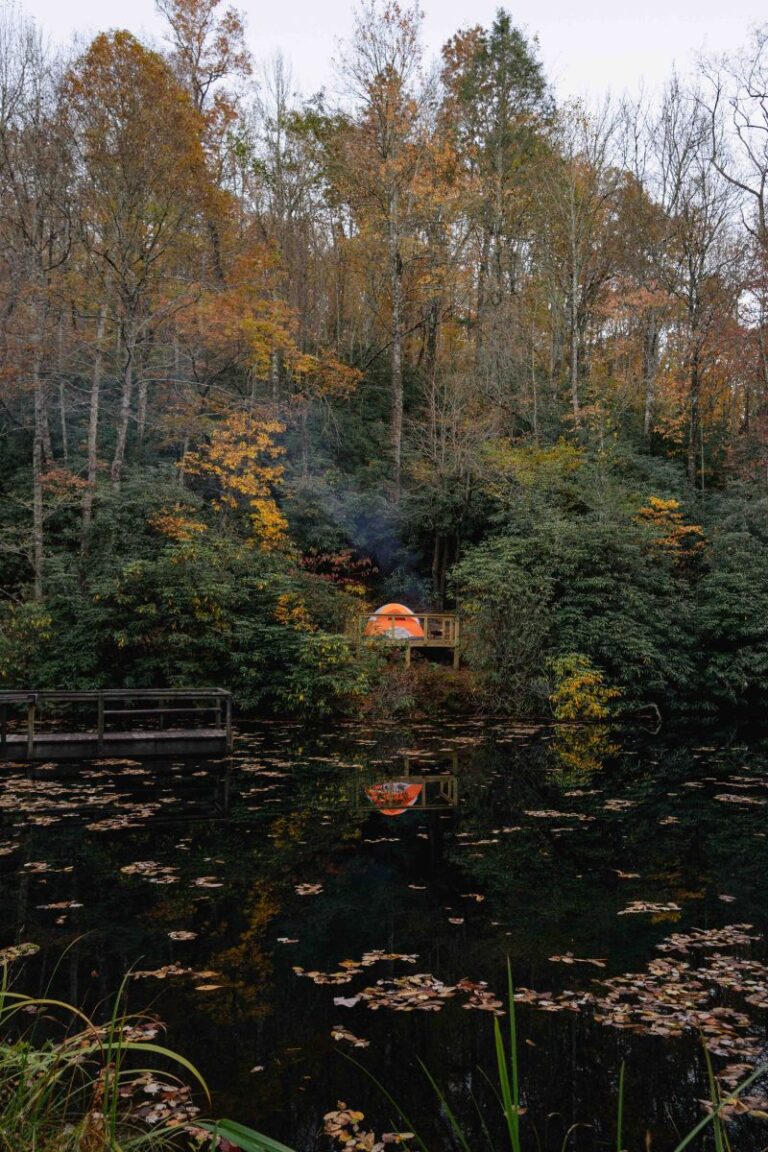
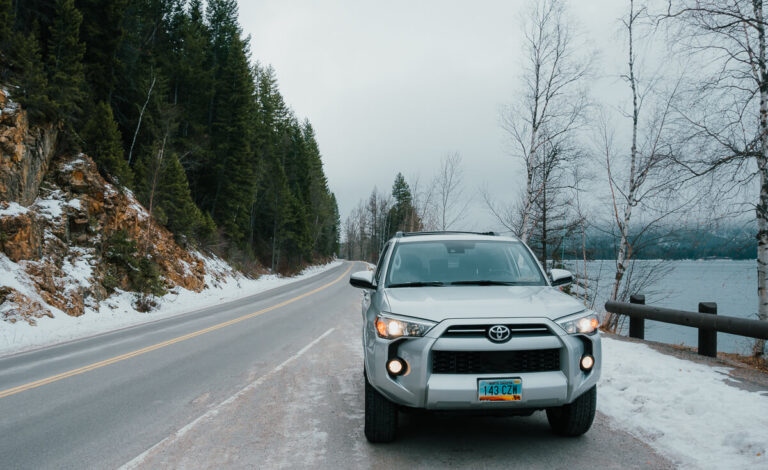
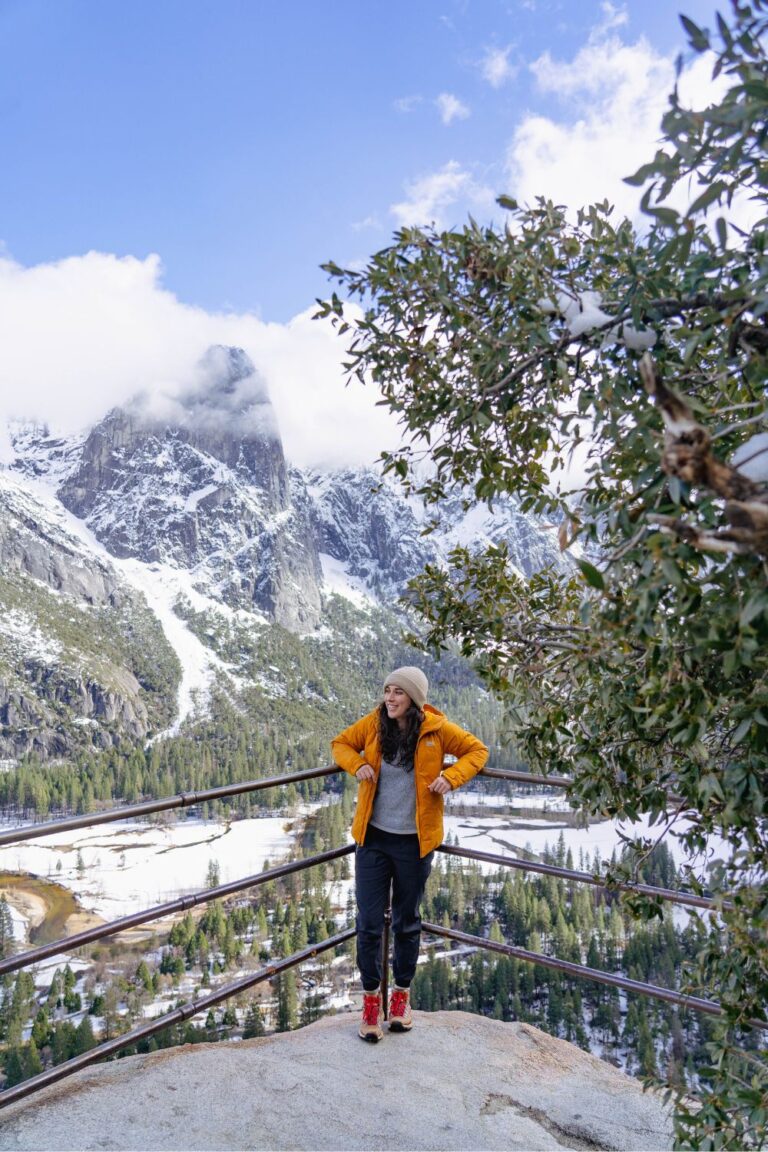
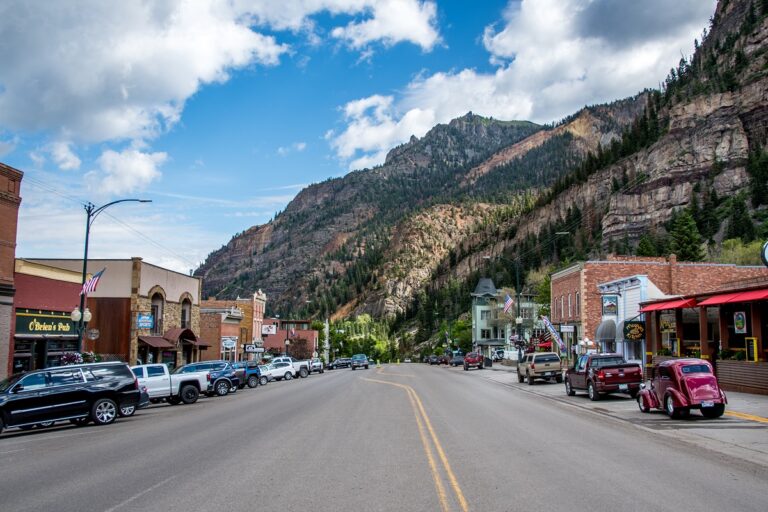
Oooh interesting! We have done quite a lot of car camping, but we did the other type (where you drive in and put up a tent!)
This actually sounds even easier (and possibly warmer!) I am just not sure if we could fit our blow up mats within the car…I guess I will have to check! 😀
This is such a great list! I’ve never really considered car camping but it is such a great idea! Much easier than constantly having to pitch and take down a tent! I hope I get an opportunity to try it out! Thanks for the great guide!
I think you’ve covered everything I would think of (and more). I’ve never done car camping but if you find some good places to park up I’m sure this would be a good alternative to regular camping.
Definitely worth bringing some form of entertainment! We went on a road trip with a campervan and had no signal, but luckily had a few shows pre-downloaded to watch!